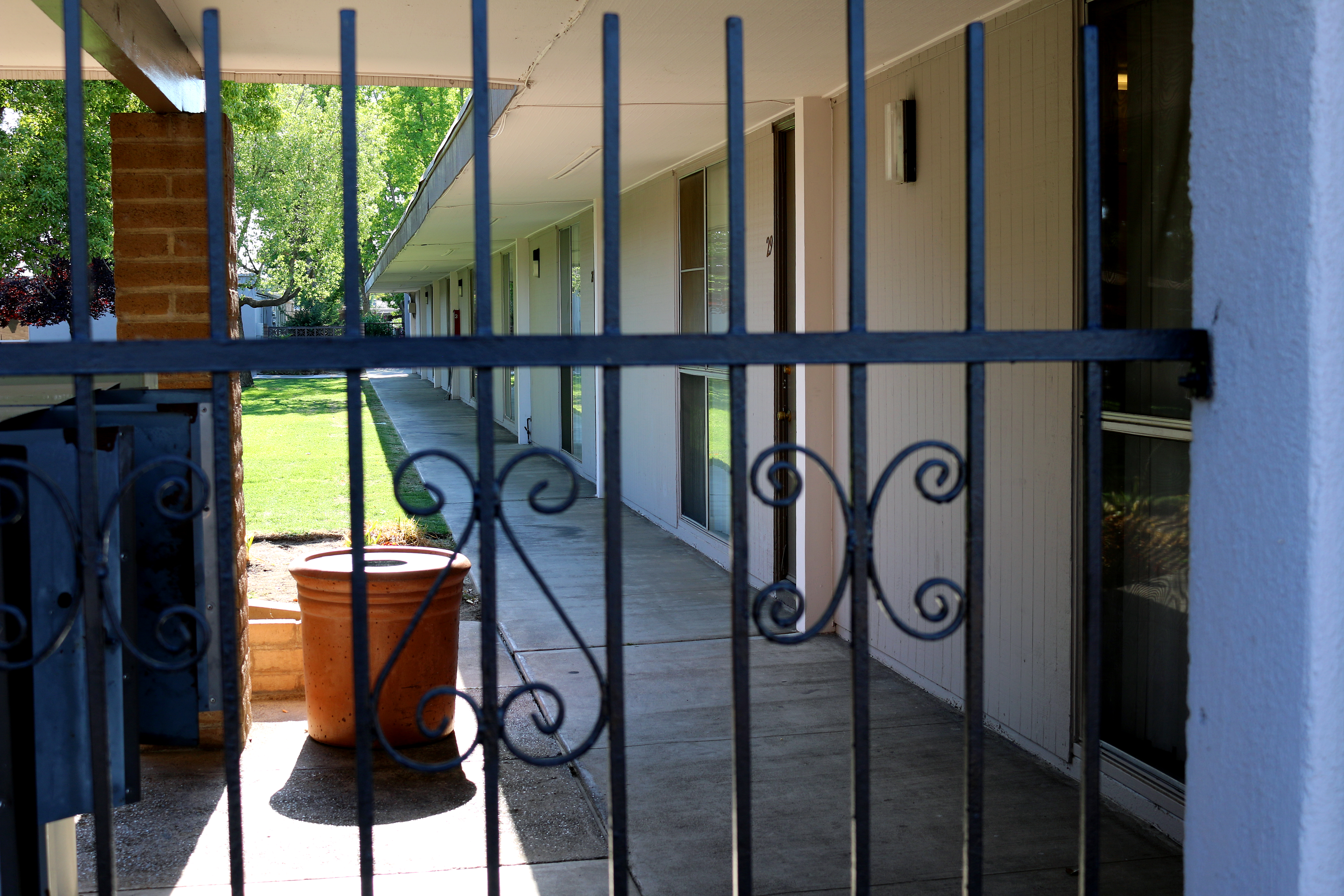“It’s only by the grace of God that me and my kids are here today as we speak. The humidifiers, vicks, vaporizers and breathing machines are what kept us going. That is what spared our lives and the lord, I believe that.” — Danelle Scoggins

FRESNO, Calif. — When news broke about conditions in the Summerset Village apartments in Central Fresno late last year, it highlighted a problem that many in this city struggle with. Across Fresno there are numerous apartment units that, because of owner negligence, do not meet legal safety and other standards. The tenants are left to suffer.
“No one has exact data on the issue because the city has not kept records,” explains Sergio Cortes, media director and co-founder of Fresno’s advocacy group No More Slumlords. “All we know for sure is that there are hundreds of families living in slum housing. We are working hard to document these stories.”
Cortes started No More Slumlords with his wife, Ashley, after the couple experienced slum-like conditions in a Fresno apartment they were renting. Earlier this month the group organized a rally in front of City Hall to call attention to the issue and pressure city leaders to take action.
Almost a third of Fresno residents live below the poverty line, many in substandard housing conditions.
In the case of Summerset Village, tenants — many of them low-income immigrants from Southeast Asia — were found to be living without heat, hot water and smoke or carbon monoxide detectors for several weeks. In January, they filed a multi-million dollar lawsuit against owner Chris Henry, who also faced hundreds of thousands in penalties assessed by the city.
“We are addressing a systemic issue that has plagued our city for decades,” says Cortes. “Many people see the symptoms of Fresno’s slumlord industry, but fail to make the connection to slumlords. We are helping people make that connection and encouraging people to be civically engaged with our city leaders.”

Danelle Scoggins, 34, knows the issue first hand. She spent five years living with her two sons at Millbrook Country Club Apartments, during which time she had to be moved into seven different units within the complex because of severe vermin and mold infestations.
“I lived there for five years and lived in seven different apartments. In every situation, there was something wrong,” says Scoggins, explaining that in addition to the mold “there were bedbugs and termites coming from the drain in the bathtub. It was so sickening.”

She says her two sons, ages 3 and 14, were hospitalized multiple times due to toxins caused by the pests and mold. “Very horrible, it was stressful,” Scoggins recalls. “Not only was it stressful for me, but it was stressful for my kids.”
Complaints to owners, meanwhile, went unanswered, even when she returned home from the hospital after giving birth to her youngest son who suffered from breathing problems.
“[They] did not take any considerations to think of my kids’ health,” Scoggins says. “The office manager moved me into a unit where, I know for certain, there was mold coming out of a brick wall.” Scoggins blames the mold for her youngest son’s seizures and for continued respiratory issues.
“We told them about the mold, they never tore it down,” Scoggins’ eldest son says. “They would just paint over it and you will never know it was there until it grows out of the bricks.” He went on to say, “Every time we moved there were problems; mold, termites and rats.”
The complex is operated by Warren Properties, which runs similar complexes across the country. The owners of Millbrook Country Club and Warren Properties did not respond to requests for comment for this story.
Scoggins’ advice to others in her situation is to inspect their apartments thoroughly before moving in, to ensure the unit is habitable. “Tenants should check the borders for holes. Checking for proper ventilation is important because without it mold can form.”
As for her landlords? “Not everyone has a heart,” she notes. “If you don’t have any money, they feel they can take advantage of you. They feel that you do not have the education to get help.”


